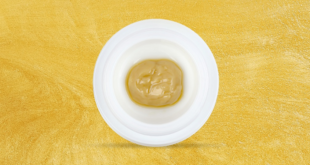
On March 1, Arizona’s northern neighbor will launch its medical marijuana program. Utah’s Medical Cannabis Act will allow residents with certain qualifying conditions to purchase and possess medical marijuana from state-licensed dispensaries if a medical provider recommends it.
Only a dozen or so dispensaries will open even though the state has more than 3 million residents. In comparison, Arizona has nearly 120 dispensaries among a population of about 7 million.
Medical marijuana will only be available in the following forms under the Utah Medical Cannabis Act:
- Tablet
- Capsule
- Concentrated oil
- Liquid suspension
- Transdermal preparation
- Gelatinous cube
- Unprocessed cannabis flower in a blister pack containing no more than one gram of flower pods in each individual blister
- Wax or resin (If a patient fails to substantially respond on two other forms listed above, a qualified medical provider may recommend wax or resin.)
Utah’s medical cannabis site states that, “Smoking of cannabis is not permitted but patients may purchase a medical cannabis device that warms cannabis material into a vapor without the use of a flame and delivers cannabis to an individual’s respiratory system (such as an electric dabbing rig). Although smoking of medical cannabis is prohibited, vaping is legal. The law prohibits candies, cookies, brownies, and other edible products. Unprocessed flowers outside of blister packs are not permitted.”
Medical conditions that qualify for a marijuana card in Utah will be:
- HIV or acquired immune deficiency syndrome
- Alzheimer’s disease
- amyotrophic lateral sclerosis
- cancer
- cachexia
- persistent nausea that is not significantly responsive to traditional treatment, except for nausea related to: pregnancy; cannabis-induced cyclical vomiting syndrome; cannabinoid hyperemesis syndrome
- Crohn’s disease or ulcerative colitis
- epilepsy or debilitating seizures
- multiple sclerosis or persistent and debilitating muscle spasms
- post-traumatic stress disorder (PTSD) that is being treated and monitored by a licensed health therapist, and that: has been diagnosed by a healthcare provider by the Veterans Administration and documented in the patient’s record; or has been diagnosed or confirmed by evaluation from a psychiatrist, doctorate psychologist, a doctorate licensed clinical social worker, or a psychiatric APRN
- autism
- a terminal illness when the patient’s life expectancy is less than six months
- a condition resulting in the individual receiving hospice care
- a rare condition or disease that affects less than 200,000 individuals in the U.S., as defined in federal law, and that is not adequately managed despite treatment attempts using conventional medications (other than opioids or opiates) or physical interventions
- pain lasting longer than two weeks that is not adequately managed, in the qualified medical provider’s opinion, despite treatment attempts using conventional medications other than opioids or opiates or physical interventions
- a condition that the compassionate use board approves (once established) on a case-by-case basis
 AZ Marijuana Arizona Marijuana Info
AZ Marijuana Arizona Marijuana Info






